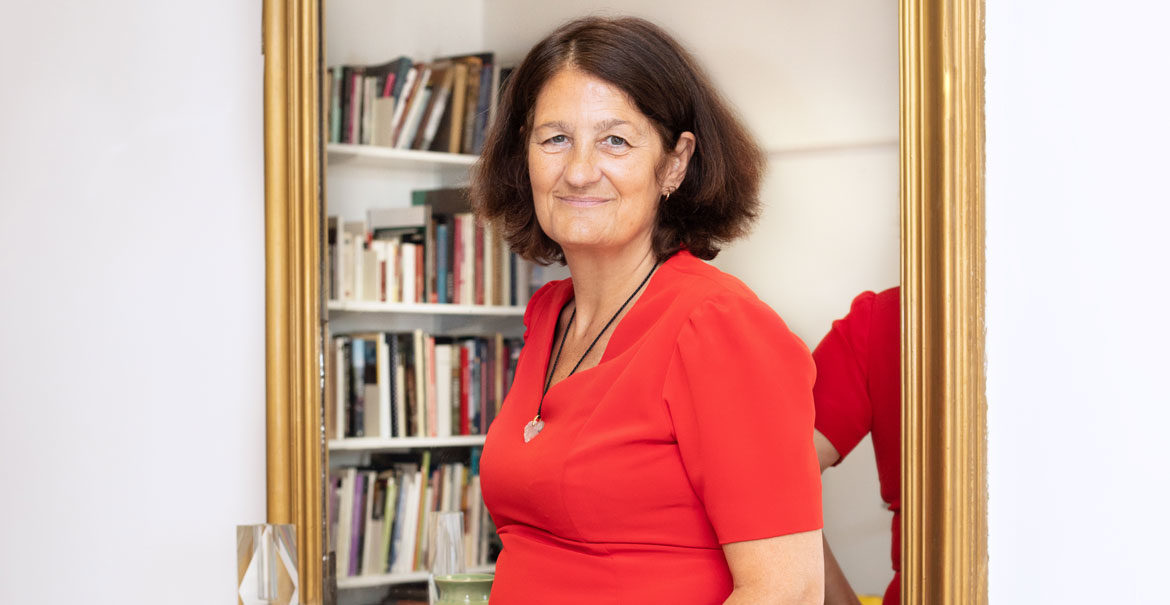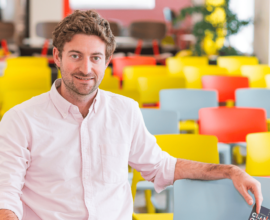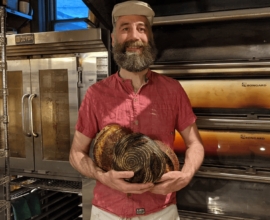Dominique de Font-Réaulx
A contagious passion for culture
![]() Reading Time: 9 minutes
Reading Time: 9 minutes
DIRECTOR OF THE LOUVRE’S INTERPRETATION & CULTURAL PROGRAMMES
Dominique de Font-Réaulx has held a succession of high calibre positions within the most prestigious museums in France. She was curator of the Musée d’Orsay when, in 2008, she had the opportunity to oversee the Louvre Abu Dhabi project; and in 2013, she became director of the Musée Eugène Delacroix. Since 2018 she has been chief curator at the Musée du Louvre, where she is the director of interpretation and cultural programmes. Always with her fingers in many pies, she not only organises world-acclaimed exhibitions, but also collaborates on a large number of art history books and catalogues. In addition, she is the editor of the “Histoire de l’art” magazine, and also teaches at the École du Louvre and at Sciences-Po.
Dominique was a precocious child who taught herself to read at the age of 4, discovered Balzac at 9, and in her teenage years, developed a fascination for 19th-century literature and the history of art. What is perhaps even more surprising is that she joined Audencia. Far from the cliché of the recluse hiding in the library all day, she threw herself full throttle into the school’s social scene and even got elected as president of the student association. After earning an MBA in the US, followed up by 4 years in the automotive industry, her passion for art caught up with her. She didn’t let motherhood impede her efforts and passed the selective entrance exam for the Ecole du Louvre, sometimes taking her toddlers along with her.
We discover an endearing woman who combines a taste for the classical arts with a modern outlook on culture. She is devoted heart and soul to sharing her passion for the arts and is constantly coming up with attractive ways of drawing new audiences into the museums.
Tell us about your background: were you born with a paint brush in your hand?
I come from a bourgeois family where culture was valued. I also had wonderful teachers who took me to museums. They organised the visits in a way that allowed freedom, dialogue and experimentation; so, I have always thought of museums as an enjoyable place to be. However, my parents never pushed me into pursuing a career in art.
They did put books in my hands early on though. The French Lycée in Amsterdam, where we lived, didn’t have a nursery section but accepted me at the age of 4. I learnt how to read in just a few months, along with the older children. I am grateful to my parents for introducing me to a wide selection of books, never classifying them on reading difficulty or age level. At age 10, I started devouring the serial novels from the 19th century such as “The Mysteries of Paris” or “Rocambole”. This genre might sound old-fashioned, but it is gripping, and great fun! Actually, the greatest American screenwriters still take their inspiration from it. I “fell” into the 19th century through its literature and have never looked back. I love this era which is all about positivism, faith in progress, and a fascination for fantasy and the supernatural.
Did you feel in your element at Audencia?
I obtained my baccalaureate at 16 and didn’t have a specific vocation at the time, so my parents guided me towards a safe path that would guarantee a wide choice of career options. I studied “prépa HEC” and joined Audencia in 1979.
Enrolling in a business school might have been a rather pragmatic choice originally, but I found myself having an incredible time at Audencia. Social sciences were already prominent, and the teaching of foreign languages was of a high standard. I benefited from existing partnerships with international schools – it’s easy to forget how innovative this was at the time. I learnt strategy through the analysis of case studies, which was fairly new, and to this day, I am still passionate about the discipline.
I had no trouble fitting in and found leading the Student Association terribly exciting. The school granted us a lot of freedom in the way we could operate. I hold great memories of organising live concerts and all sorts of great parties, which somehow didn’t affect my academic performance. Looking back, how lucky were we to be students during those golden years! This air of freedom sadly faded after 1983 with the advent of AIDS and mass unemployment.
Early in your career you realised that the corporate world wasn’t for you and you veered more towards the arts. Do you regret having initially taken the wrong path and wasted your time?
At Audencia, I obtained a scholarship to do an MBA in the US. The economic context had deteriorated when I got back to France and I put pressure on myself to start working quickly and repay my student loan. I tried to join IBM and went through a long series of tests. I remember receiving a call from their HR manager who admitted that my case puzzled them. They had rarely seen such a discrepancy between the results of logical tests – which I had aced, and those of the behavioural tests – which indicated that I would struggle to fit in with their corporate culture. In other words, I wasn’t docile enough for them… I landed my first job quickly, a marketing role at Ford where I stayed for 4 years. I then got poached by BMW to be their advertising director. I now realise how insane that sounds, since I was only 25 at the time.
I had an epiphany shortly after: I was not fulfilled because I simply wasn’t cut out for the corporate world. I restarted my studies from scratch, this time at the “Ecole du Louvre” and at the Sorbonne. I proved to be a bright scholar despite raising three young children – whom I sometimes brought along to the lecture theatres… but these were different times! I realised I had found my calling. I then graduated from the “Ecole du Patrimoine” (the school of heritage) and became a curator.
Entering the job market at the age of 22 might be my only regret. Otherwise, I am generally pleased with all my life choices because I always manage to leverage the benefits of any situation I find myself in. I don’t consider my detour via the business path to be a waste of my time, since I gained skills that stand me in good stead to this day.
What would you say are the main qualities that explain your ascent up to the prestigious role you hold today?
I believe I have good interpersonal skills and when I did an internship at the Bibliothèque Nationale and later at other institutions, I forged close ties with my tutors. They were invested in my development and provided me with invaluable guidance throughout my career moves.
The strategist mindset that I sharpened at Audencia came into play in a particularly fortuitous way. In 1997, a fire devastated a large part of the Musée des Monuments Français where I was working. Grappling with this immediate crisis, I managed to keep a cool head and make important decisions quickly. By prioritising the artwork that should be salvaged, I learnt the meaning of the word “conservation” the hard way! I didn’t hesitate to knock on the door of some of the most influential people in the art world to ask for their support.
A third quality that helped my career is determination. When Henri Loyrette, president of the musée du Louvre, entrusted me with overseeing the scientific coordination of the Louvre Abu Dhabi within the Louvre in 2007, I questioned my abilities for the role. When I realised the unique potential of such an institution, I knew it would be a once-in-a-lifetime opportunity and never looked back. The project was highly controversial: more than 50 out of the 65 curators at the Louvre had signed a petition against it. I became its staunch defender, and I am so pleased that today the Louvre Abu Dhabi is not just accepted but widely acclaimed.
What would you say to those who might see your occupation as somewhat fusty and disconnected from the realities of the world?
I guess this misconception comes from the age of the items we care for – the oldest of them at the Louvre in Paris date back to the Neolithic age. But as I gladly shared with the last three French Presidents, the museum as an institution is only 220 years old. It is a modern and revolutionary creation by the Republic. As the Louvre Abu Dhabi proves, wherever they may be, museums promote the values of humanism, transmission, and tolerance.
As a sign of how deeply museums are rooted in society, look at the celebration that surrounded the reopening of the Louvre after the Covid lockdown. I was so moved by how the press covered this event. Beyond conservation, my mission is primarily about sharing and I can’t fulfil it properly if I am out of touch with the realities of present-day society. When I commissioned the “Founding Myths” exhibition at the Louvre for instance, modern cinema was an essential source of inspiration. I am proud that we managed to include Darth Vader’s “original” mask! One of my fondest achievements is a partnership I set up between the Musée Delacroix, and the Lilian Thuram Foundation “Education contre le Racisme” (Anti-racism Education). We regularly invited children from disadvantaged suburbs, who had never set foot in a museum before. It proved an eye-opener for thousands of kids and was truly magical. I consider this sort of transformative initiative to be an essential part of my job.
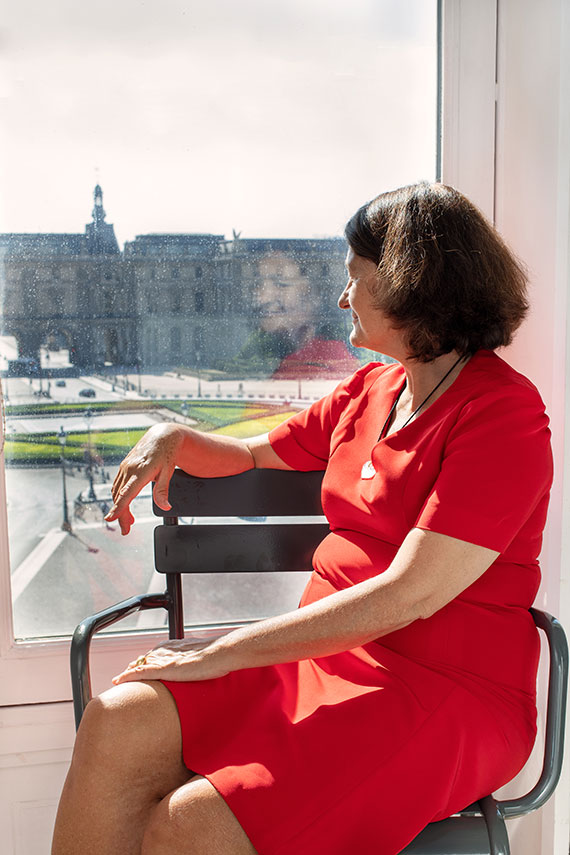
You have run the Delacroix, worked at Orsay and the Louvre museums… the most revered and emotionally charged institutions in France. How do you overcome any feelings of impostor syndrome?
My peers and I often joke that as young curators we were all impostors! But after almost 30 years in the field, I honestly feel legitimate now. Not that I don’t have doubts or that I don’t make mistakes. But I have learnt to manage my insecurities. Firstly, I always force myself to cast a fresh look on the topic I am working on, even if I am a specialist on the subject. The more I question, the less I doubt. Secondly, I don’t work in silos, especially on complex projects. For example, bouncing ideas off other team members proved essential when I was tasked with developing a programme of free evenings on Saturdays at the Louvre. We set up games for children, classical concerts, dance performances, reading corners… It was amazing, with visitors discovering or re-discovering the Louvre. We witnessed some emotional exchanges. But this had never been done anywhere, and it was exciting for the team to bring in changes to enhance the programme as we went along.
Throughout my career I have been lucky enough to identify a set of sliding doors and then get my foot in at the right time, and go in the right direction. I believe that every successful career move mainly boils down to sheer determination, skills and perseverance, but you also need a good dollop of luck.
What’s your take on success?
I see too many people paralysed by the fear of failure. To be honest, I have had my fair share of disappointments. But the process of trial and error is the only way to progress. And contrary to today’s belief… it doesn’t happen overnight. This is why I am so annoyed by the prevalent fantasy of meteoric start-up growth. I also think that success is often a bit of an imposture. For example, as a curator, I struggle to understand why some of my exhibitions have been popular while others have flopped. In reality, I always put as much effort and passion into all my projects. So, I have come to realise that I have limited responsibility in creating success. Other people decide whether my work is successful or not, influenced by the zeitgeist.
What is your secret to unwinding?
It sounds paradoxical but I am rarely stressed, precisely because I am quite an anxious person. I have had to deal with serious illness, and since confronting death, I am acutely aware of just how precious life is. Being concerned with deep metaphysical questions protects me from life’s everyday stresses. It’s all relative!
Another way that I keep sane is by being involved in a multitude of projects. I learnt quickly that if you are monotasking and things don’t go your way, your whole world collapses. I sometimes spend months preparing an exhibition that doesn’t come to life due to lack of funding and this can be quite disheartening. But then I shift my focus to alternative projects, such as a special feature in the magazine “Histoire de l’Art” of which I am the editor in chief. Changing focus helps me boost my morale and energy levels.
Are you active in Audencia’s development? What would be your advice to help the school to grow in a sustainable way?
A few years ago, the alumni association invited me to receive the award for the “most atypical career”. I have subsequently been asked to become the patron of the Grande Ecole class of 2016, and I felt very touched. I have since been asked to join the School’s board of governors. I find it exciting to be involved with the strategic direction of an institution such as Audencia. My recommendation is that Audencia should refrain from mimicking the schools at the very top of the rankings. Since the ’80s, the School’s strength has been its international outlook, its openness towards culture, and a sort of freedom in its approach to education. Audencia should stay true to its values and singularity.
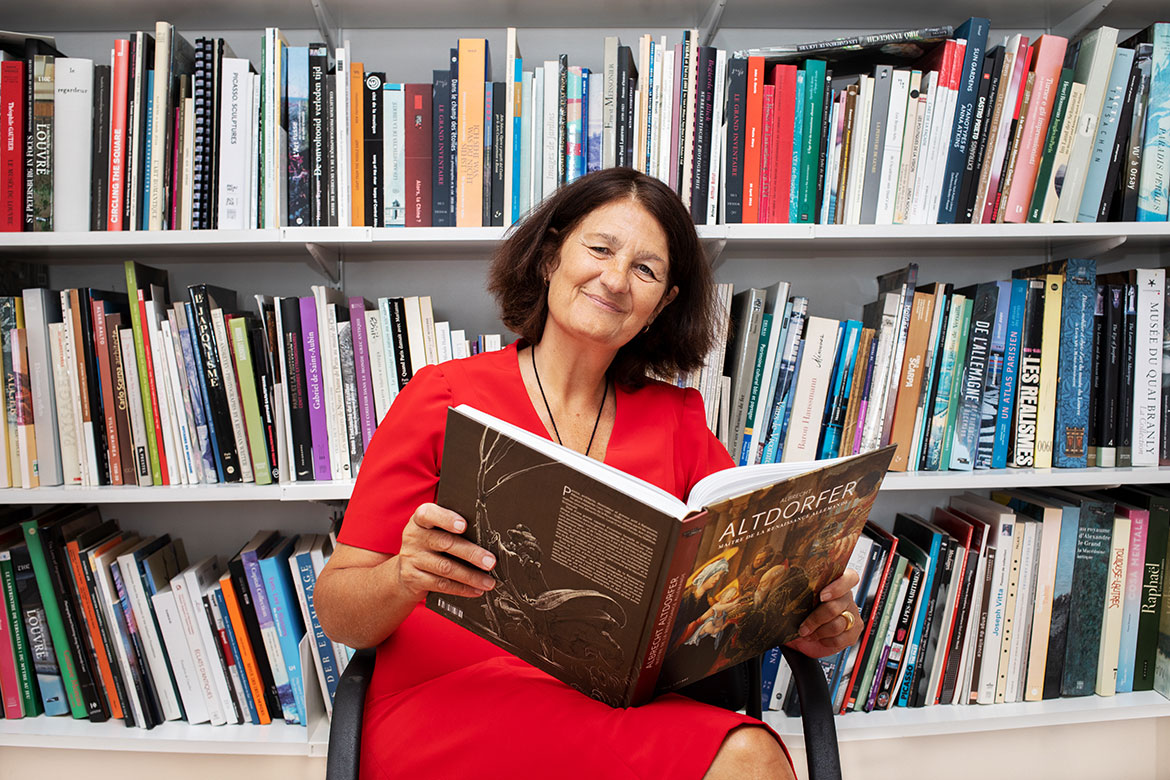
What message would you like to send to the students who will graduate this year?
I have never devised a career plan and I still don’t have one! I am wary of providing definite career advice, but I can at least reassure the students that they don’t need a rigid ten-year plan. I think a fulfilling career all comes down to making a few important decisions, but it is also about the art of staying alert and open to potential offers. Once you are on a path, you should absolutely give it all you’ve got. And even if you are very busy, take the byways. I endeavour to check out the smaller museums all over the world and it is incredible how much I learn.
What is your favourite piece of artwork in your house?
I will single out a special Art Nouveau-inspired Daum vase. It is doubly precious to me: it is a beautiful object given to me by one of my Emirati students. She was one of the first students of the “museum studies and management” masters we set up in Abu Dhabi. I am very fond of the symbol of transmission I see in this object.
